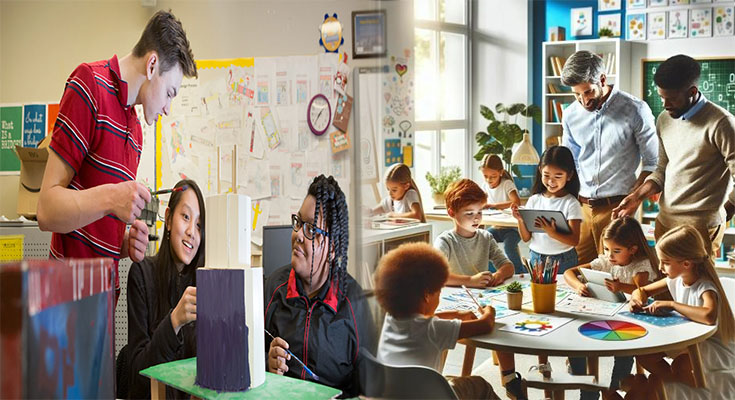Cooperative learning is a teaching strategy that promotes student engagement, active participation, and collaboration in the classroom. When implemented effectively, it can have a significant impact on student learning and achievement. In this article, we will explore some effective cooperative learning strategies specifically designed for elementary classrooms.
Jigsaw Technique
The jigsaw technique is a popular cooperative learning strategy that encourages students to work together in groups to accomplish a common goal. In this strategy, the class is divided into small groups, and each group member becomes an expert on a specific topic. They then come together in “expert groups” to discuss, clarify, and become knowledgeable about their assigned topic. Subsequently, they return to their original groups and share their expertise, ensuring that all group members learn from one another.
This strategy not only promotes collaboration, but also encourages individual accountability and responsibility. Students develop a sense of ownership over their learning and become actively engaged in the material through research, discussion, and teaching.
Think-Pair-Share
Think-Pair-Share is a cooperative learning strategy that allows students to think independently, share their thoughts with a partner, and then contribute to a class discussion. This strategy encourages active participation from all students and fosters effective communication and listening skills.
To implement Think-Pair-Share, the teacher poses a question, problem, or scenario and gives students a few moments to think about it on their own. Students then pair up with a partner to share their thoughts and ideas. Finally, the pairs share their discussions with the larger group, promoting collaboration and enhancing critical thinking and reasoning skills.
Group Investigations
Group investigations involve assigning small groups of students a specific task or problem to investigate collectively. This cooperative learning strategy requires students to work together to explore a topic, gather information, analyze data, and draw conclusions. Group investigations promote teamwork, problem-solving, and critical thinking skills.
Teachers provide guidance and structure by providing clear instructions, resources, and appropriate assessment tools. This strategy encourages students to take ownership of their learning, fosters active engagement, and allows for the exploration of multiple perspectives.
Round-Robin Writing
Round-Robin writing is a cooperative learning strategy that promotes collaboration and creativity in the writing process. It involves groups of students working together to craft a story or piece of writing. Each student contributes to the writing process by adding a sentence or paragraph, and the story is passed around the group until it is complete.
This strategy encourages active participation, as students must listen to their peers, build upon their ideas, and ensure coherence and cohesion in the writing. Round-Robin writing nurtures creativity, communication, and teamwork, while also providing students with the opportunity to develop their writing skills.
Cooperative learning strategies have proven to be effective in elementary classrooms by fostering collaboration, engagement, and academic success. By implementing techniques such as the jigsaw technique, think-pair-share, group investigations, and round-robin writing, teachers can enhance student learning and create a positive and inclusive classroom environment.
These strategies not only promote active engagement and critical thinking, but also develop vital social skills such as communication, teamwork, and empathy. When students collaborate and learn from one another, they not only deepen their understanding of the subject matter, but also strengthen their problem-solving and decision-making abilities.
By employing these effective cooperative learning strategies, elementary teachers empower their students to become active learners, critical thinkers, and effective team members. They lay the foundation for a collaborative and student-centered learning environment, setting students up for success not only in the classroom but also in their future endeavors.





